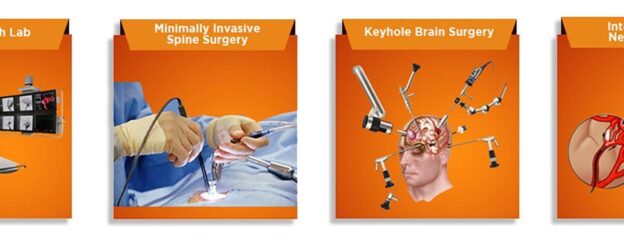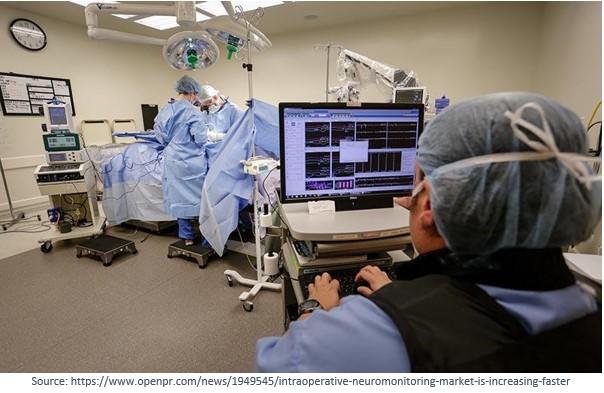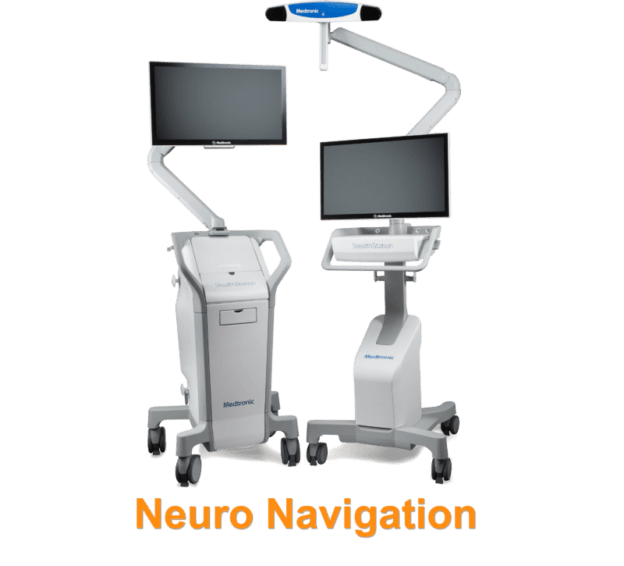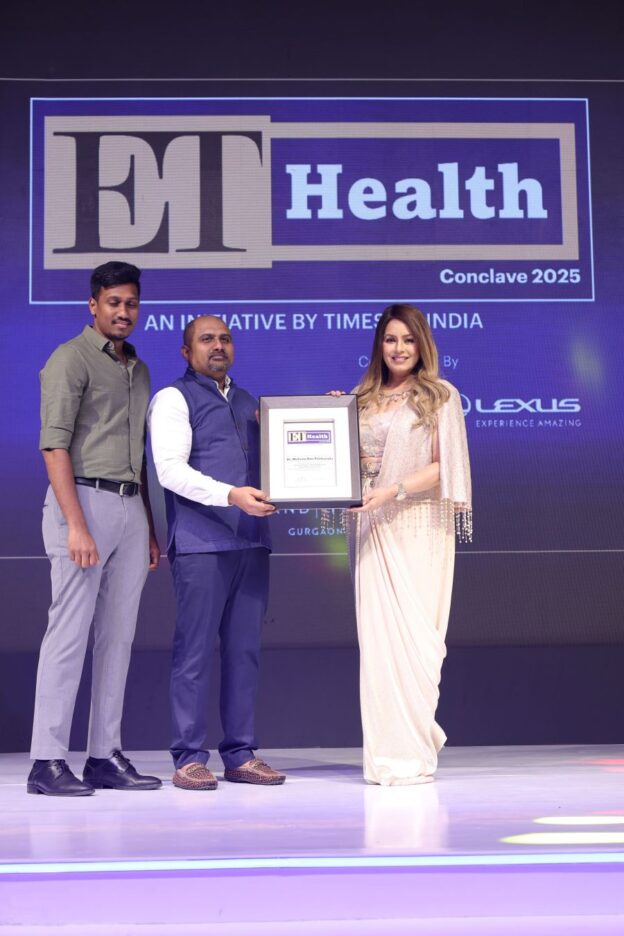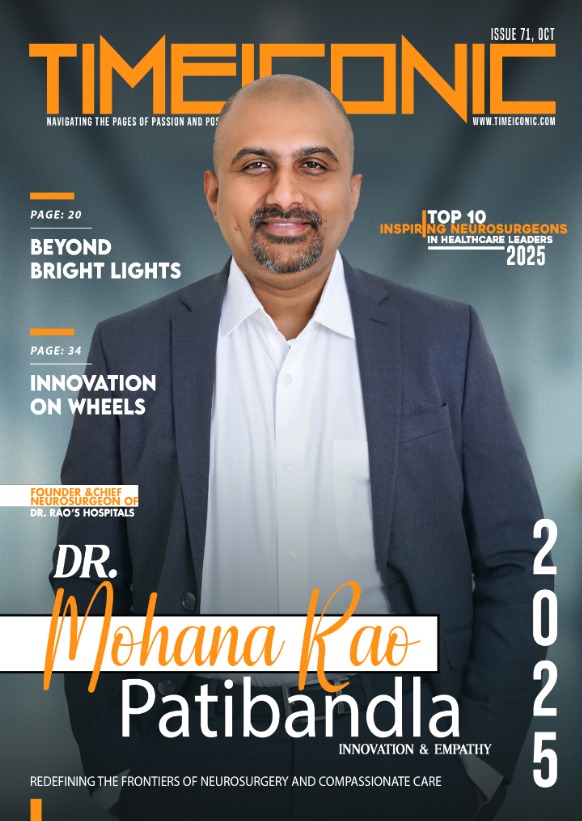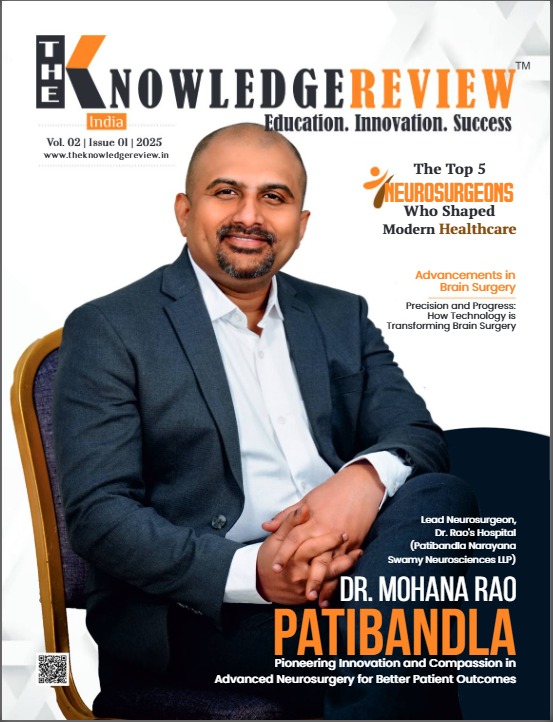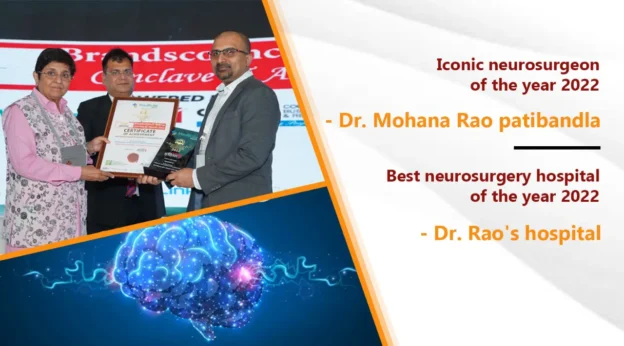Endoscopic Skull Base Surgery: A Game Changer in Complex Tumors
Skull base tumors are among the most complex and challenging conditions in neurosurgery. These tumors arise in deep, critical areas at the base of the brain, surrounded by vital structures such as cranial nerves, major blood vessels, and the brainstem.
Traditionally, skull base tumor surgery required large open operations with extensive bone removal and brain retraction. While effective, these approaches often came with longer recovery times and higher risks.
Today, endoscopic skull base surgery has revolutionized the treatment of complex skull base tumors. By using natural anatomical corridors and advanced endoscopic technology, surgeons can now access deep-seated tumors with greater precision, safety, and faster recovery.
What Is Endoscopic Skull Base Surgery?
Endoscopic skull base surgery is a minimally invasive technique that allows surgeons to reach skull base tumors using an endoscope (a high-definition camera with light) through natural pathways, most commonly the nose.
This approach is often referred to as:
- Endoscopic endonasal skull base surgery
- Endoscopic transnasal skull base surgery
- Keyhole skull base surgery
By avoiding large external incisions and excessive brain retraction, this technique dramatically changes how complex skull base tumors are treated.
Why Endoscopic Skull Base Surgery Is a Game Changer
Endoscopic skull base surgery represents a paradigm shift in neurosurgery. Instead of approaching tumors from outside the skull, surgeons work from within, following the tumor’s natural path.
Key advantages include:
- Direct access to deep-seated tumors
- Minimal disruption of normal brain tissue
- Improved visualization with magnified, angled views
- Better preservation of cranial nerves and blood vessels
These benefits are particularly important in complex skull base tumors where millimeters can make a difference.
Complex Tumors Treated with Endoscopic Skull Base Surgery
Endoscopic skull base surgery is used for a wide range of benign and malignant tumors, including:
- Skull base meningioma
- Pituitary tumors
- Craniopharyngioma
- Clival tumors
- Chordoma and chondrosarcoma
- Cavernous sinus tumors
- Petroclival tumors
- Craniovertebral junction tumors
It is also effective in redo skull base surgery and recurrent tumors where previous open surgery has altered anatomy.
Advanced Technologies Used in Endoscopic Skull Base Surgery
Modern endoscopic skull base surgery relies on multiple technologies working together to improve safety and outcomes:
- High-definition and 4K endoscopy
- Navigation-guided endoscopic skull base surgery
- Intraoperative neuromonitoring for cranial nerve protection
- Neuronavigation-assisted tumor removal
These tools help surgeons operate with confidence in anatomically crowded and high-risk regions.
Safety and Accuracy of Endoscopic Skull Base Surgery
One of the biggest concerns for patients is safety. Endoscopic skull base surgery has shown excellent safety profiles when performed in experienced centers.
- Reduced risk of cranial nerve injury
- Improved vascular safety
- Lower rates of brain retraction injury
- Enhanced tumor visualization for precise removal
Techniques such as multilayer skull base reconstruction have significantly reduced complications like CSF leaks.
Endoscopic Skull Base Surgery vs Open Skull Base Surgery
| Aspect | Endoscopic Approach | Open Surgery |
|---|---|---|
| Incision | No external incision | Large scalp incision |
| Brain Retraction | Minimal | Significant |
| Hospital Stay | Shorter | Longer |
| Recovery Time | Faster | Slower |
For many skull base tumors, the endoscopic approach has become the preferred option.
Recovery After Endoscopic Skull Base Surgery
Recovery is generally faster compared to traditional open surgery.
- Shorter hospital stay
- Less post-operative pain
- Earlier return to daily activities
- Reduced cosmetic concerns
Most patients resume light activities within weeks, depending on tumor type and extent of surgery.
Outcomes and Success Rates
Studies from major neurosurgical centers worldwide demonstrate:
- High tumor control rates
- Good preservation of neurological function
- Lower complication rates in experienced hands
According to evidence indexed on PubMed and NIH, endoscopic skull base surgery outcomes are comparable or superior to open approaches for selected tumors.
[Source: PubMed]
Endoscopic Skull Base Surgery in India, Andhra Pradesh & Guntur
India has emerged as a global destination for advanced skull base surgery. At Dr. Rao’s Hospital in Guntur, endoscopic skull base surgery is performed using modern technology and multidisciplinary expertise.
Under the leadership of :contentReference[oaicite:0]{index=0}, complex skull base tumors are treated with a strong focus on minimally invasive techniques, safety, and long-term outcomes.
Frequently Asked Questions
Is endoscopic skull base surgery safe?
Yes. When performed by experienced skull base surgeons, endoscopic skull base surgery is safe and effective for many complex tumors.
How long is hospital stay after endoscopic skull base surgery?
Hospital stay is usually shorter than open surgery and depends on tumor type and recovery progress.
Why choose Dr. Rao’s Hospital for skull base surgery?
At Dr. Rao’s Hospital, advanced endoscopic skull base surgery is combined with navigation and neuromonitoring to maximize safety and outcomes.
Looking for Advanced Skull Base Tumor Treatment?
If you or your loved one has been diagnosed with a complex skull base tumor, expert evaluation is essential.
Visit Dr. Rao’s Hospital for advanced endoscopic skull base surgery focused on safety, precision, and quality of life.
📞 090100 56444
📧 info@drraoshospitals.com
Connect with Dr. Rao’s Hospital
Who Is an Ideal Candidate for Endoscopic Skull Base Surgery?
Not every skull base tumor requires the same surgical approach. Careful patient selection is critical to achieving optimal outcomes with endoscopic skull base surgery.
Patients who benefit the most typically include those with:
- Midline or paramedian skull base tumors
- Tumors extending into the nasal, clival, or sellar regions
- Recurrent or residual tumors after previous surgery
- High surgical risk where open surgery may cause excess morbidity
Preoperative imaging, endocrinological assessment, and multidisciplinary discussion play a key role in deciding the safest approach.
Limitations and Challenges of Endoscopic Skull Base Surgery
While endoscopic skull base surgery offers many advantages, it is not without limitations.
- Lateral or highly vascular tumors may require alternative approaches
- Steep learning curve requiring advanced training and experience
- Complex reconstruction needed to prevent CSF leaks
For these reasons, outcomes are strongly dependent on surgeon expertise, institutional volume, and availability of advanced technology.
The Role of a Multidisciplinary Skull Base Team
Successful skull base tumor management extends beyond surgery alone. Endoscopic skull base surgery is most effective when delivered through a multidisciplinary team approach.
This often includes:
- Neurosurgeons and ENT skull base surgeons
- Endocrinologists
- Neuro-anesthetists and intensivists
- Radiologists and radiation oncologists
Such collaboration ensures comprehensive care from diagnosis through rehabilitation and follow-up.
The Future of Endoscopic Skull Base Surgery
Endoscopic skull base surgery continues to evolve rapidly. Future advancements are expected to further improve precision, safety, and functional outcomes.
- AI-assisted surgical planning
- Improved neuronavigation integration
- Enhanced endoscopic visualization
- Advanced reconstruction techniques to eliminate CSF leaks
These innovations will expand the range of tumors that can be safely treated using minimally invasive approaches.
Key Takeaway: Precision with Preservation
Endoscopic skull base surgery has fundamentally changed how complex skull base tumors are treated.
By combining minimally invasive access with advanced visualization, navigation, and neuromonitoring, surgeons can achieve effective tumor control while preserving neurological function and quality of life.
For selected patients, this approach represents the safest and most advanced option available today.
Need Expert Evaluation for a Skull Base Tumor?
If you or your loved one has been diagnosed with a complex skull base tumor, early expert consultation can significantly influence outcomes.
At Dr. Rao’s Hospital, Guntur, endoscopic skull base surgery is performed using navigation-guided techniques and intraoperative neuromonitoring to ensure maximum safety and precision.
Led by Dr. Mohana Rao Patibandla, the team focuses on minimally invasive, function-preserving surgery for complex skull base conditions.
📞 090100 56444
📧 info@drraoshospitals.com
🌐 https://drraoshospitals.com
Follow Dr. Rao’s Hospital for Advanced Skull Base Surgery Updates
Stay informed with patient education, surgical innovations, and real-world outcomes in brain and spine care.
People Also Ask: Endoscopic Skull Base Surgery
What is endoscopic skull base surgery?
Endoscopic skull base surgery is a minimally invasive technique that removes tumors at the base of the brain using a high-definition endoscope, most commonly through the nose, without large external incisions.
Is endoscopic skull base surgery safer than open surgery?
For selected skull base tumors, endoscopic skull base surgery is often safer than open surgery because it avoids brain retraction, improves visualization, and reduces damage to surrounding structures.
What types of tumors can be treated with endoscopic skull base surgery?
Tumors such as pituitary adenomas, skull base meningiomas, craniopharyngiomas, chordomas, clival tumors, cavernous sinus tumors, and recurrent skull base tumors can be treated using endoscopic approaches.
How long does recovery take after endoscopic skull base surgery?
Recovery time is generally faster than traditional open surgery. Many patients experience shorter hospital stays, less pain, and earlier return to daily activities, depending on tumor type and extent of surgery.
What are the risks or complications of endoscopic skull base surgery?
Possible risks include cerebrospinal fluid (CSF) leak, infection, hormonal imbalance, or cranial nerve deficits. However, with modern reconstruction techniques, complication rates are significantly reduced.
Can recurrent or redo skull base tumors be treated endoscopically?
Yes. Endoscopic skull base surgery is particularly useful for recurrent or residual tumors,
as it allows surgeons to navigate altered anatomy with greater precision and safety.
Is endoscopic skull base surgery available in India?
Yes. Advanced endoscopic skull base surgery is available in India, including at specialized centers such as Dr. Rao’s Hospital in Guntur, Andhra Pradesh.
Why choose Dr. Rao’s Hospital for skull base tumor surgery?
At Dr. Rao’s Hospital, led by Dr. Mohana Rao Patibandla, skull base tumors are treated using advanced endoscopic techniques, neuronavigation, and intraoperative neuromonitoring
with a strong focus on safety and functional preservation.
ఎండోస్కోపిక్ స్కల్ బేస్ సర్జరీ: క్లిష్ట ట్యూమర్లకు గేమ్ ఛేంజర్
స్కల్ బేస్ ట్యూమర్లు (Skull Base Tumors) న్యూరోసర్జరీలో అత్యంత క్లిష్టమైన సమస్యలలో ఒకటి. ఈ ట్యూమర్లు మెదడు అడుగుభాగంలో ఏర్పడతాయి మరియు క్రానియల్ నర్వ్స్, ముఖ్యమైన రక్తనాళాలు, బ్రెయిన్ స్టెమ్ వంటి అత్యంత సున్నితమైన నిర్మాణాల సమీపంలో ఉంటాయి.
గతంలో, ఈ ట్యూమర్లను తొలగించడానికి పెద్ద ఓపెన్ సర్జరీలు చేయాల్సి వచ్చేది. దీంతో ఎక్కువ కట్లు, మెదడుపై ఒత్తిడి, దీర్ఘకాల ఆసుపత్రి గడువు మరియు ఎక్కువ ప్రమాదాలు ఉండేవి.
ఈ పరిస్థితిని పూర్తిగా మార్చిన ఆధునిక విధానం ఎండోస్కోపిక్ స్కల్ బేస్ సర్జరీ. ఇది క్లిష్టమైన స్కల్ బేస్ ట్యూమర్ల చికిత్సలో ఒక నిజమైన గేమ్ ఛేంజర్ గా మారింది.
ఎండోస్కోపిక్ స్కల్ బేస్ సర్జరీ అంటే ఏమిటి?
ఎండోస్కోపిక్ స్కల్ బేస్ సర్జరీ అనేది ఒక మినిమల్లీ ఇన్వేసివ్ (తక్కువ కట్లతో చేసే) శస్త్రచికిత్స విధానం. ఈ సర్జరీలో హై-డెఫినిషన్ కెమెరా ఉన్న ఎండోస్కోప్ను ఉపయోగించి, ముక్కు ద్వారా (endonasal / transnasal) స్కల్ బేస్ ట్యూమర్లను చేరుకుంటారు.
దీన్ని ఈ పేర్లతో కూడా పిలుస్తారు:
- ఎండోస్కోపిక్ ఎండోనాసల్ స్కల్ బేస్ సర్జరీ
- ఎండోస్కోపిక్ ట్రాన్స్నాసల్ స్కల్ బేస్ సర్జరీ
- కీహోల్ స్కల్ బేస్ సర్జరీ
బయట నుంచి పెద్ద కట్లు లేకుండా, మెదడును ఎక్కువగా లాగకుండా ట్యూమర్ను నేరుగా చేరుకోవడం ఈ సర్జరీ ప్రత్యేకత.
ఎందుకు ఇది ఒక గేమ్ ఛేంజర్?
ఎండోస్కోపిక్ స్కల్ బేస్ సర్జరీ న్యూరోసర్జరీలో ఆలోచనా విధానాన్నే మార్చింది.
ఇంతకుముందు ట్యూమర్ను బయట నుంచి చేరేవారు. ఇప్పుడు మాత్రం
ట్యూమర్ ఉన్న దారినే అనుసరించి లోపల నుంచి చేరుతున్నారు.
- మెదడుపై ఒత్తిడి తక్కువ
- చుట్టుపక్కల నరాలు, రక్తనాళాల రక్షణ
- ఎండోస్కోప్ ద్వారా పెద్దగా, స్పష్టంగా కనిపించడం
- ఫంక్షన్ (మాట, చూపు, కదలిక) కాపాడటం
క్లిష్టమైన స్కల్ బేస్ ట్యూమర్లలో మిల్లీమీటర్ల తేడా కూడా చాలా ముఖ్యం — ఇక్కడే ఈ సర్జరీ ప్రాముఖ్యత.
ఏ ట్యూమర్లకు ఎండోస్కోపిక్ స్కల్ బేస్ సర్జరీ ఉపయోగపడుతుంది?
- పిట్యూటరీ ట్యూమర్లు
- స్కల్ బేస్ మెనింజియోమా
- క్రానియోఫారింజియోమా
- క్లైవల్ ట్యూమర్లు
- కార్డోమా / కాండ్రోసార్కోమా
- కేవెర్నస్ సైనస్ ట్యూమర్లు
- పెట్రోక్లైవల్ ట్యూమర్లు
- క్రానియోవెర్టీబ్రల్ జంక్షన్ ట్యూమర్లు
మళ్లీ వచ్చిన (recurrent) ట్యూమర్లు లేదా మునుపటి సర్జరీ తర్వాత మిగిలిన ట్యూమర్లకు కూడా ఈ విధానం చాలా ఉపయోగపడుతుంది.
ఎండోస్కోపిక్ స్కల్ బేస్ సర్జరీలో ఉపయోగించే ఆధునిక సాంకేతికత
- హై-డెఫినిషన్ / 4K ఎండోస్కోప్
- నావిగేషన్ గైడెడ్ స్కల్ బేస్ సర్జరీ
- ఇన్ట్రా ఆపరేటివ్ న్యూరోమానిటరింగ్
- న్యూరోనావిగేషన్తో ట్యూమర్ తొలగింపు
ఈ టెక్నాలజీలు కలిపి భద్రత, ఖచ్చితత్వం, ఫలితాలను గణనీయంగా మెరుగుపరుస్తాయి.
భద్రత మరియు ఖచ్చితత్వం
రోగులు ఎక్కువగా అడిగే ప్రశ్న — “ఇది ఎంత సురక్షితం?”
- క్రానియల్ నర్వ్ గాయాల ప్రమాదం తక్కువ
- రక్తనాళాల భద్రత మెరుగైనది
- CSF లీక్ నివారణకు ఆధునిక రీకన్స్ట్రక్షన్
- ట్యూమర్ను ఖచ్చితంగా తొలగించే అవకాశం
అనుభవం ఉన్న కేంద్రాల్లో ఈ సర్జరీ అత్యంత సురక్షితమైనదిగా పరిగణించబడుతుంది.
ఎండోస్కోపిక్ సర్జరీ vs ఓపెన్ స్కల్ బేస్ సర్జరీ
| అంశం | ఎండోస్కోపిక్ | ఓపెన్ సర్జరీ |
|---|---|---|
| బయట కట్ | లేదు | పెద్ద కట్ |
| మెదడు ఒత్తిడి | చాలా తక్కువ | ఎక్కువ |
| ఆసుపత్రి గడువు | తక్కువ | ఎక్కువ |
| రికవరీ | వేగంగా | నెమ్మదిగా |
ఎండోస్కోపిక్ స్కల్ బేస్ సర్జరీ తర్వాత రికవరీ
- ఆసుపత్రిలో ఉండే రోజులు తక్కువ
- నొప్పి తక్కువ
- రోజువారీ పనులకు త్వరగా తిరిగివెళ్ళడం
- కాస్మెటిక్ సమస్యలు ఉండవు
ట్యూమర్ రకం మరియు సర్జరీ పరిమాణాన్ని బట్టి రికవరీ సమయం మారవచ్చు.
భారతదేశంలో, ఆంధ్రప్రదేశ్లో & గుంటూరులో ఈ సర్జరీ
భారతదేశం ఇప్పుడు అధునాతన స్కల్ బేస్ సర్జరీలకు ప్రపంచ స్థాయి కేంద్రంగా ఎదుగుతోంది.
డా. రావు హాస్పిటల్, గుంటూరు లో ఎండోస్కోపిక్ స్కల్ బేస్ సర్జరీ నావిగేషన్ మరియు న్యూరోమానిటరింగ్తో సురక్షితంగా నిర్వహించబడుతోంది.
డా. మోహన రావు పాటిబండ్ల నేతృత్వంలో క్లిష్టమైన స్కల్ బేస్ ట్యూమర్లు మినిమల్లీ ఇన్వేసివ్ పద్ధతులతో చికిత్స చేయబడుతున్నాయి.
People Also Ask: ఎండోస్కోపిక్ స్కల్ బేస్ సర్జరీ
ఎండోస్కోపిక్ స్కల్ బేస్ సర్జరీ సురక్షితమా?
అవును. అనుభవం ఉన్న న్యూరోసర్జన్ చేతుల్లో ఇది అత్యంత సురక్షితమైన పద్ధతి.
ఈ సర్జరీ తర్వాత ఎంత కాలంలో కోలుకుంటారు?
సాధారణంగా ఓపెన్ సర్జరీతో పోలిస్తే రికవరీ వేగంగా ఉంటుంది.
మళ్లీ వచ్చిన ట్యూమర్లకు ఇది ఉపయోగపడుతుందా?
అవును. రీకరెంట్ లేదా రీడో స్కల్ బేస్ ట్యూమర్లకు ఎండోస్కోపిక్ పద్ధతి చాలా ఉపయోగపడుతుంది.
స్కల్ బేస్ ట్యూమర్కు నిపుణుల చికిత్స కావాలా?
మీరు లేదా మీ కుటుంబ సభ్యులు స్కల్ బేస్ ట్యూమర్తో బాధపడుతున్నట్లయితే, సరైన సర్జన్ మరియు సరైన సాంకేతికత ఫలితాల్లో పెద్ద తేడా తీసుకొస్తుంది.
డా. రావు హాస్పిటల్, గుంటూరు లో ఎండోస్కోపిక్ స్కల్ బేస్ సర్జరీ సురక్షితంగా, ఖచ్చితంగా నిర్వహించబడుతోంది.
📞 090100 56444
📧 info@drraoshospitals.com
🌐 https://drraoshospitals.com

